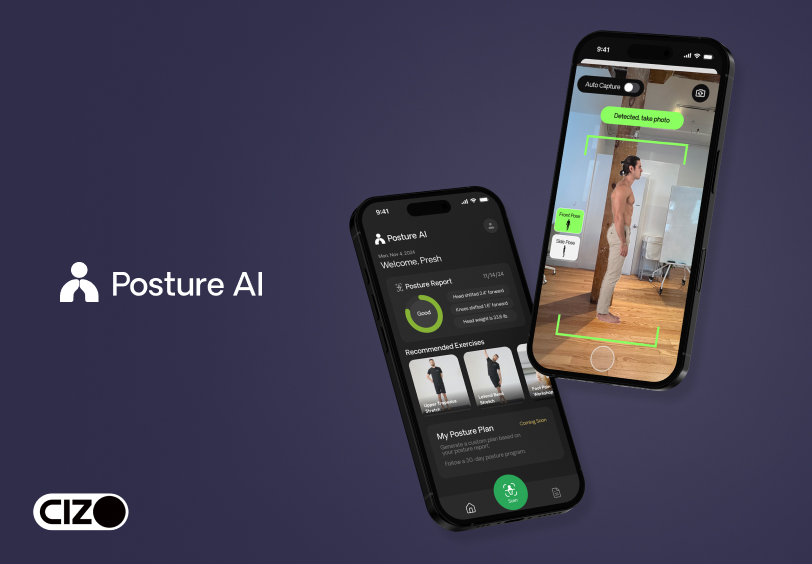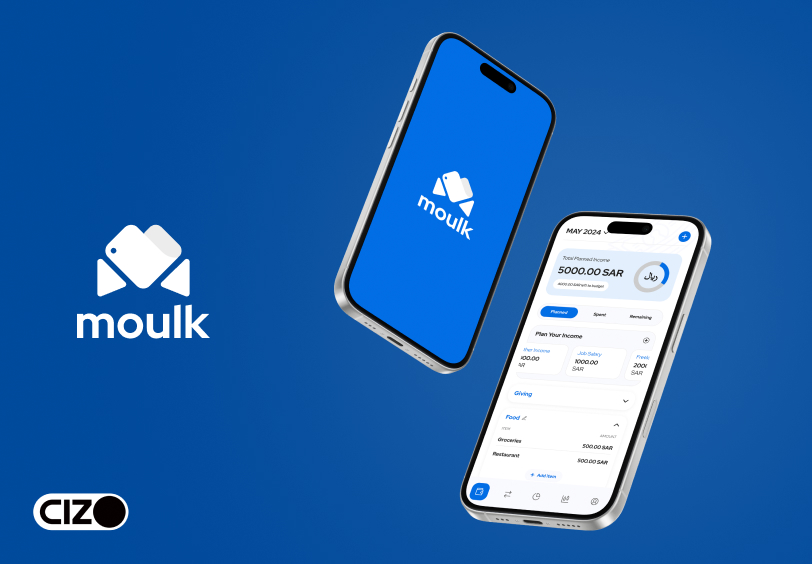 17th July 2024
17th July 2024
Building Smarter iOS Apps: The Role of AI in Mobile Development
In recent years, artificial intelligence (AI) has emerged as a transformative force across various industries, including mobile app development. For iOS developers, integrating AI into mobile applications offers unprecedented opportunities to enhance user experiences, streamline operations, and provide personalized services. With its ability to analyze vast amounts of data, learn from user interactions, and make intelligent predictions, AI is revolutionizing the way iOS apps are developed and used.
This blog explores the role of AI in building smarter iOS app developers can harness this technology to create innovative and high-performing applications.
We only collect information for business use as detailed in our Privacy Policy
Understanding AI in Mobile Development
AI refers to the simulation of human intelligence processes by machines, particularly computer systems. These processes include learning (acquiring information and rules for using the information), reasoning (using the rules to reach approximate or definite conclusions), and self-correction. In the context of mobile app development, AI technologies encompass machine learning (ML), natural language processing (NLP), computer vision, and predictive analytics, among others.
Key AI Technologies Transforming iOS Apps
- Machine Learning (ML)
ML enables iOS apps to learn from user interactions and data, allowing the app to improve its functionality over time. By leveraging ML algorithms, developers can create apps that offer personalized content, recommendations, and user experiences. For example, an e-commerce app can use ML to analyze user behavior and suggest products that match their preferences. - Natural Language Processing (NLP)
NLP allows iOS apps to understand and respond to human language. This technology is essential for building chatbots, virtual assistants, and voice-activated controls. Apple’s Siri is a prime example of NLP in action, providing users with a seamless way to interact with their devices through voice commands. - Computer Vision
Computer vision enables iOS apps to interpret and understand visual information from the world. This technology is used in applications such as augmented reality (AR), image recognition, and facial recognition. Apps like Apple’s Measure app use computer vision to provide accurate measurements of real-world objects using the device’s camera. - Predictive Analytics
Predictive analytics uses statistical algorithms and ML techniques to identify patterns in data and predict future outcomes. For iOS apps, this can mean predicting user behavior, identifying potential issues before they occur, and optimizing app performance. For instance, a fitness app might use predictive analytics to suggest workouts based on the user’s past activity and goals.
Benefits of AI in iOS App Development
- Enhanced User Experience
AI allows developers to create more intuitive and user-friendly apps. Personalization is a key aspect of this, as AI can tailor the app’s content and functionality to meet individual user needs. For example, a news app can use AI to curate articles based on the user’s reading habits and interests. - Improved Efficiency and Performance
AI can automate routine tasks and optimize app performance. For instance, AI-powered analytics can monitor app usage and identify areas for improvement, such as optimizing load times or reducing battery consumption. This leads to a smoother and more efficient user experience. - Advanced Security Features
AI enhances the security of iOS apps by detecting and preventing potential threats. Machine learning algorithms can identify unusual patterns of behavior that may indicate fraud or malicious activity. Facial recognition and biometric authentication are also powered by AI, providing secure and convenient ways for users to access their apps. - Innovative Functionalities
AI opens up new possibilities for innovative app functionalities. From virtual assistants that help manage daily tasks to AR features that enhance user engagement, AI enables developers to create apps that stand out in a crowded market.
Real-World Examples of AI in iOS Apps
- Siri
Siri, Apple’s virtual assistant, is one of the most well-known examples of AI in an iOS app. Powered by NLP and ML, Siri can understand and respond to a wide range of voice commands, providing users with a hands-free way to interact with their devices. - Face ID
Face ID is a facial recognition system that uses AI to unlock iPhones and authenticate transactions securely. By analyzing over 30,000 infrared dots projected onto the user’s face, Face ID can accurately recognize the user’s unique facial features. - Google Photos
Google Photos uses AI for image recognition and organization. The app can automatically tag photos based on the objects, people, and locations they contain, making it easier for users to search and manage their photo collections. - Spotify
Spotify uses AI to personalize music recommendations for its users. By analyzing listening habits and preferences, the app’s ML algorithms can suggest playlists and songs that match the user’s taste.
Steps to Integrate AI into iOS Apps
- Identify the Use Case
The first step in integrating AI into an iOS app is to identify the specific use case. This involves understanding the problem you want to solve or the functionality you want to enhance with AI. For example, if you’re developing a fitness app, you might use AI to provide personalized workout recommendations. - Choose the Right AI Technology
Based on the use case, select the appropriate AI technology. This could be ML, NLP, computer vision, or predictive analytics. For instance, if your app requires voice recognition, NLP would be the suitable technology. - Leverage AI Frameworks and Tools
Apple provides several AI frameworks and tools that make it easier for developers to integrate AI into their apps. Core ML is a popular framework that allows you to integrate ML models into your app. Vision is a framework for image recognition and processing, while Natural Language provides tools for NLP tasks. - Train and Fine-Tune AI Models
If you’re using ML, you’ll need to train your models using relevant data. This involves feeding the model large amounts of data so it can learn to make accurate predictions or classifications. Fine-tuning the model is also crucial to ensure it performs well in real-world scenarios. - Test and Optimize
Thorough testing is essential to ensure that the AI functionality works as intended and provides a seamless user experience. Optimize the AI algorithms and models to achieve the best performance, considering factors such as accuracy, speed, and resource usage. - Monitor and Iterate
After launching the app, continuously monitor its performance and gather user feedback. Use this data to make improvements and updates, ensuring that the AI functionality remains relevant and effective.
Challenges and Considerations
- Data Privacy and Security
Handling user data responsibly is crucial when integrating AI into iOS apps. Developers must ensure that data collection and processing comply with privacy regulations such as GDPR and CCPA. Implementing robust security measures to protect user data is also essential. - Resource Constraints
AI algorithms can be resource-intensive, potentially impacting the performance and battery life of mobile devices. Developers need to optimize their AI models and consider using cloud-based solutions to offload some of the processing tasks. - Ethical Considerations
AI can raise ethical concerns, especially related to bias and fairness. Developers must ensure that their AI models are trained on diverse and representative data to avoid biased outcomes. Transparency in how AI decisions are made is also important to build user trust. - Keeping Up with Rapid Advancements
The field of AI is rapidly evolving, with new techniques and tools being developed continuously. Staying updated with the latest advancements and best practices is crucial for developers who want to leverage AI effectively in their apps.
The Future of AI in iOS App Development
The integration of AI into iOS apps is still in its early stages, and the potential for future advancements is immense. Here are some trends to watch for in the coming years:
- Increased Use of Augmented Reality (AR)
AI-powered AR applications will become more sophisticated, providing immersive and interactive experiences. From gaming to retail, AR has the potential to transform various industries. - Advanced Personalization
AI will continue to drive personalization in iOS apps, offering even more tailored experiences. As AI algorithms become more advanced, they will be able to understand user preferences and behaviors with greater accuracy. - Enhanced AI Assistants
Virtual assistants like Siri will become more capable and versatile, handling a wider range of tasks and providing more accurate responses. Integration with third-party apps and services will also improve, making AI assistants more useful in daily life. - Better Predictive Analytics
Predictive analytics will become more accurate and widespread, helping developers anticipate user needs and optimize app performance. This will lead to more proactive and responsive apps. - AI-Driven Development Tools
AI will also play a role in the development process itself, with AI-driven tools assisting developers in writing code, debugging, and optimizing their apps. This will streamline the mobile app development process and reduce time-to-market.
Partner with Cizo Technology for Smarter iOS Apps
At Cizo Technology, we specialize in leveraging cutting-edge AI techniques and strategies to build smarter iOS apps. Our comprehensive range of services includes:
- iOS App Development Services: Our team of experts can help you build high-performance iOS apps that leverage AI to provide personalized experiences, advanced analytics, and enhanced security.
- IoT App Development Services: We can help you develop IoT applications that harness the power of AI to monitor and control devices, automate processes, enhance security, and provide predictive insights.
- Flutter App Development Services: Our AI-powered Flutter app development services can help you create cross-platform apps with personalized user interfaces, voice and image recognition, smart recommendations, and predictive analytics.
- Apple Watch Development Services: We can help you develop AI-driven Apple Watch applications that provide health and fitness monitoring, personalized notifications, voice recognition, and smart recommendations.
- VisionPro OS Development Services: Our team can help you create cutting-edge AR applications using VisionPro OS development services, with AI-powered object recognition, gesture recognition, contextual awareness, and predictive analytics.
Want to boost your iOS app’s performance with AI? Partner with Cizo Technology to leverage cutting-edge AI techniques and strategies. Our team of experts will help you optimize your app, enhance user experience, and stay ahead of the competition.
Contact us today to transform your iOS app into a high-performance, AI-powered solution!
Conclusion
The integration of AI into iOS app development is revolutionizing the way we interact with mobile applications. From personalized experiences to advanced security features, AI offers numerous benefits that enhance user satisfaction and app performance. By leveraging AI technologies such as ML, NLP, computer vision, and predictive analytics, developers can create smarter, more innovative iOS apps that stand out in a competitive market.
However, integrating AI into mobile app development also comes with challenges, including data privacy, resource constraints, and ethical considerations. Developers must navigate these challenges carefully to ensure their AI-powered apps are not only effective but also responsible and trustworthy.
As AI continues to evolve, the possibilities for its application in iOS app development are endless. By staying informed about the latest advancements and best practices, developers can harness the power of AI to create cutting-edge apps that meet the needs and expectations of modern users.
A PROJECT WITH CIZO?











 hello@cizotech.com
hello@cizotech.com +91 79907 01039
+91 79907 01039 


